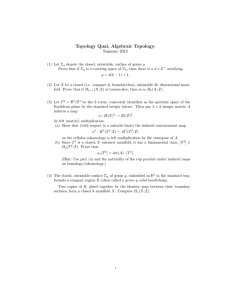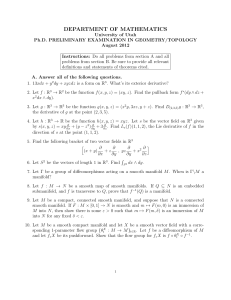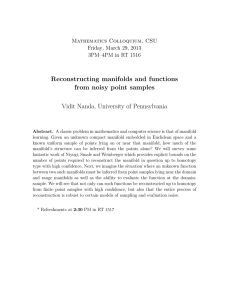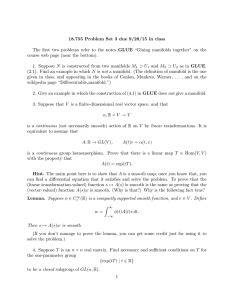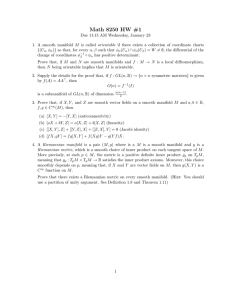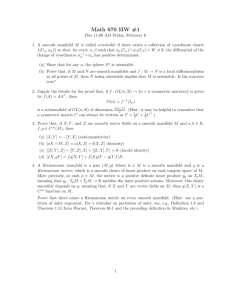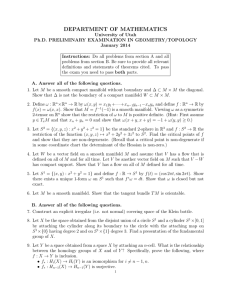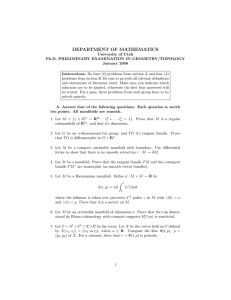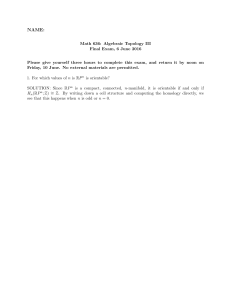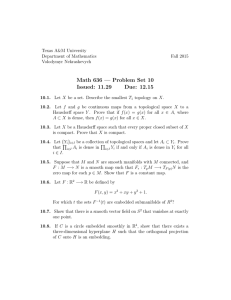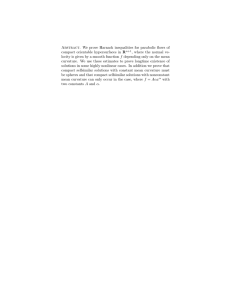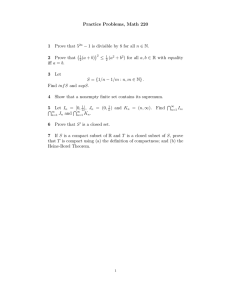DEPARTMENT OF MATHEMATICS
advertisement
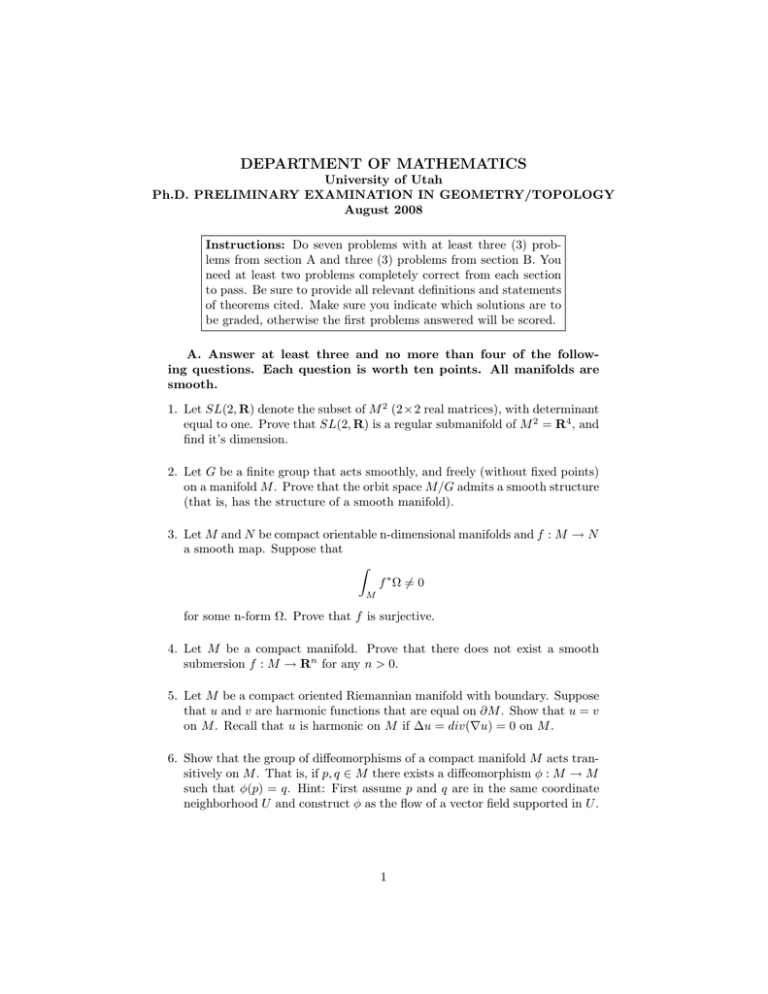
DEPARTMENT OF MATHEMATICS
University of Utah
Ph.D. PRELIMINARY EXAMINATION IN GEOMETRY/TOPOLOGY
August 2008
Instructions: Do seven problems with at least three (3) problems from section A and three (3) problems from section B. You
need at least two problems completely correct from each section
to pass. Be sure to provide all relevant definitions and statements
of theorems cited. Make sure you indicate which solutions are to
be graded, otherwise the first problems answered will be scored.
A. Answer at least three and no more than four of the following questions. Each question is worth ten points. All manifolds are
smooth.
1. Let SL(2, R) denote the subset of M 2 (2×2 real matrices), with determinant
equal to one. Prove that SL(2, R) is a regular submanifold of M 2 = R4 , and
find it’s dimension.
2. Let G be a finite group that acts smoothly, and freely (without fixed points)
on a manifold M . Prove that the orbit space M/G admits a smooth structure
(that is, has the structure of a smooth manifold).
3. Let M and N be compact orientable n-dimensional manifolds and f : M → N
a smooth map. Suppose that
!
f ∗ Ω #= 0
M
for some n-form Ω. Prove that f is surjective.
4. Let M be a compact manifold. Prove that there does not exist a smooth
submersion f : M → Rn for any n > 0.
5. Let M be a compact oriented Riemannian manifold with boundary. Suppose
that u and v are harmonic functions that are equal on ∂M . Show that u = v
on M . Recall that u is harmonic on M if ∆u = div(∇u) = 0 on M .
6. Show that the group of diffeomorphisms of a compact manifold M acts transitively on M . That is, if p, q ∈ M there exists a diffeomorphism φ : M → M
such that φ(p) = q. Hint: First assume p and q are in the same coordinate
neighborhood U and construct φ as the flow of a vector field supported in U .
1
B. Answer at least three and no more than four of the following
questions so that the total number of questions you have answered is
seven. Each question is worth ten points.
7. Let S 2 be the 2-sphere and T the torus.
(a) Show that every map from S 2 to T is null-homotopic.
(b) Show that there are infinitely many homotopy classes of maps from T
to S 2 .
8. Let X be a compact topological space and X̃ its universal cover. Show that
π1 (X) is finite if and only if X̃ is compact.
9. Let Xn be the space obtained by attaching a disk D to the torus T = S 1 × S 1
where the attaching map is a degree n map from ∂D to the circle S 1 × {p}
in T .
(a) Calculate π1 (Xn ).
(b) Calculate the homology and cohomology of Xn with Z-coefficients and
with Zm -coefficients where Zm is the cyclic group of order m.
10. Show that S 2 ∨ S 4 and CP 2 are not homotopy equivalent.
11. Construct a ∆-complex structure for the torus and use it to calculate the
homology, cohomology and cup product structure for the torus.
12. Let M be a closed, orientable manifold of dimension 2k and assume that
Hk−1 (M ) is torsion free. Show that Hk (M ) is torsion free.
2
